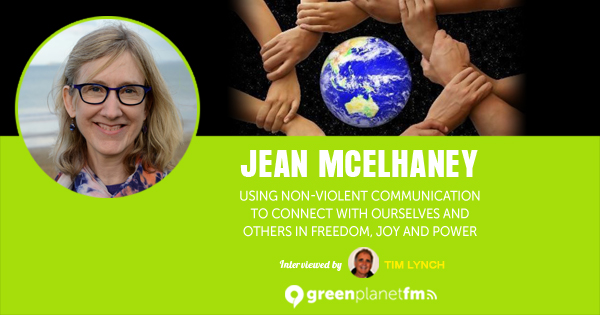
Never before have we needed a greater range of communication skills to allow us to reconnect as family, community and a global society. To speak authentically,
and from our heart.
With the media polarisation of society, be it local or global - along with an education system that is constantly needing to encourage our skills in
conflict resolution as well as reconciling opposing points of view, how are we going to become a more caring, unified and trustworthy society?
New Zealand is often rated as one of the most peaceful countries in the world and yet has a very high rate of domestic violence and teen suicide --
both indicators that more can be done to give alternatives to beating up on ourselves and each other.
It has been shared in this country and around the world in schools, workplaces, spiritual communities, social change organizations, and public workshops.
It helps develop the ability to empathize with ourselves and others, to express ourselves with both authenticity and compassion, and to transform
conflicts into creative opportunities to connect even more effectively.
It teaches us how to joyfully reclaim our freedom from "shoulds" and "have to's", discover what truly matters, and to improve relationships with ourselves
and others. All of these skills are vital for today’s changing world, where we are increasingly faced with the reality of our interdependence across
cultural and political differences.
Though NZers are a polite people, we are often not as forthcoming in speaking our truth because we do not want to hurt other people’s feelings or,
are actually fearful of talking truth to power.
However the imperative is: that it’s not about being nice, it's about being real!
We here in this country - especially our men folk are basically a quiet, unemotional people (except when the All Blacks or Yachties are winning) and
in general lack the vocabulary to express ourselves emotionally when in a situation that requires both presence, mindfulness and … being
vulnerable.
When we embrace Nonviolent Communication we find that there so many more tools to assist us to a deeper quality of our being - being authentic and
speaking from our heart - from a space that is not encumbered with anger, frustration or poor self worth.
In our present busy and stressful daily life the imperative is, that we are now able to enlist the methods on NVC - to bring about a deeply felt shift
in our response to both life, love and people and open up a new vista on how we approach existence.
Starting with the ‘macro’ big picture the USA versus the Soviet Union (now Russia) if we could deescalate the nuclear tensions then in 1990, why not
now - today? Donald Trump has been for it!
Also, on the micro - how are you doing with your relationships with your family, sisters and brothers, or your loved one? Are you stuck and have internal
dialogue constantly gnawing away inside, because you find it to difficult to communicate or just lack the assistance in articulating your needs
to ‘clear the air?’
From the macro to the micro - to reconciling differing points of view in our living rooms with family - to total frustration with the political system
and your local political representative. - how can we de-escalate differences in our daily life?
But how?
How do we stop the war in our own heads and also beating up on our own selves and also stop the wars with the people that we love? - our wives, husbands
and loved ones?
This naturally includes the work place, in team games and localised groups.
Plus how do we go for what we want and instead of to a place of fear and frustration and focussing on what we don’t want to - how do we go for what
we want?
With NVC - Nonviolent Communication - it is a big piece of the how - a way to decouple yourself from conflict and use wise choices and tools to take
a step back and then mindfully engage in coming together once again.
Tim mentions that with domestic violence very predominant - much of it due to lacking in able to express oneself intelligently - and by needing a larger
vocabulary tool box in which to draw from. Also that having a sense of worth and valuing oneself so that we are not in a constant state of victimhood.
It is very important to being able to articulate and clarify how we feel and also ready to listen. These are not strong points in our society and many
are to be found in the male of the species.
Jean mentions she knows of a NVC practitioner who has worked with people who have physically abused their partner and he introduced NVC communication
as part of his group intervention with them. This resulted in zero % recidivism rate - which is unheard of.
So how do you get past the thoughts and the blame and so if we are angry at somebody and we go into our ‘habit thought’ it is THEIR fault that I am
so unhappy - that we might want to punish them and beat up on them in someway - but that may be a tragic attempt to meet their needs for more happiness
or more well being - it’s just not going to get us where we want to be.
Instead we want to teach people - we want to teach ourselves - how to go for what we really want.
So part of the how is to catch ourselves and step back … as to what is our intention here. So do we want to connect or do we want to do the
same old patterns of judging and blaming?
It will most probably get us more of the same so the first thing is the zero step - to ask ourselves what is my intention here?
To reconnect to ourselves - we do it with practice and tuning into our body and self connecting … am I noticing that my muscles are getting
tense? Is my voice increasing in volume - i.e - am I shouting … Am I noticing that my voice isn’t getting higher?
Sooooooo, what am I feeling? Scared? Angry? So what am I needing ….? Some peace? Some power? Or a way to step back into well being …
and am I at this moment, having power over my own self or am I - at the mercy of my habits - old thought patterns - my habit energies and I might
be about to say the same old thing that I have said before … you idiot, why are you doing this … and I am just going to get the same
results I’ve gotten before which probably will not be at all beneficial!
So NVC gives us tools as to where to put our intention to get the outcome we really want and to really put our attention to connect with the person
that you are committed to - then we are on the same page and then we may have some very different smarties as to what you want to see happen next.
This interview covers many instances of how we can clear old patterns and break new ground in understanding relationships. When partners learn to adeptly
articulate their needs and express lovingly and mindfully their needs - play comes into it and repartee and banter can come into it as well.
The importance of all parties agreeing in the spirit of goodwill to find a way forward really allows non violent communication to come into its own
where relationships flourish and everyone finds themselves on the same page.
Taking the ‘vibes up’ - communicating their needs - then singing the vibes up again at the end.
Non Violent Communication needs to be a skill that every person leaving school needs to embrace. The need for peaceful relations needs to be championed
continuously from the Prime Minister’s office all the way down and across our nation.
